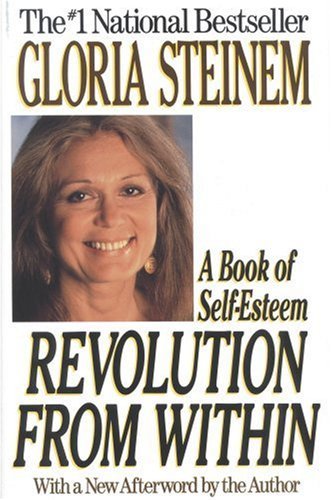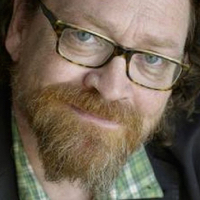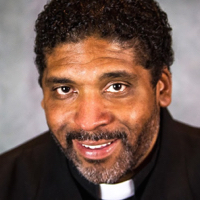Rascals case in brief
In the beginning, in 1989, more than 90 children at the Little Rascals Day Care Center in Edenton, North Carolina, accused a total of 20 adults with 429 instances of sexual abuse over a three-year period. It may have all begun with one parent’s complaint about punishment given her child.
Among the alleged perpetrators: the sheriff and mayor. But prosecutors would charge only Robin Byrum, Darlene Harris, Elizabeth “Betsy” Kelly, Robert “Bob” Kelly, Willard Scott Privott, Shelley Stone and Dawn Wilson – the Edenton 7.
Along with sodomy and beatings, allegations included a baby killed with a handgun, a child being hung upside down from a tree and being set on fire and countless other fantastic incidents involving spaceships, hot air balloons, pirate ships and trained sharks.
By the time prosecutors dropped the last charges in 1997, Little Rascals had become North Carolina’s longest and most costly criminal trial. Prosecutors kept defendants jailed in hopes at least one would turn against their supposed co-conspirators. Remarkably, none did. Another shameful record: Five defendants had to wait longer to face their accusers in court than anyone else in North Carolina history.
Between 1991 and 1997, Ofra Bikel produced three extraordinary episodes on the Little Rascals case for the PBS series “Frontline.” Although “Innocence Lost” did not deter prosecutors, it exposed their tactics and fostered nationwide skepticism and dismay.
With each passing year, the absurdity of the Little Rascals charges has become more obvious. But no admission of error has ever come from prosecutors, police, interviewers or parents. This site is devoted to the issues raised by this case.
On Facebook
Click for earlier Facebook posts archived on this site
Click to go to
Today’s random selection from the Little Rascals Day Care archives….
Click for earlier Facebook posts archived on this site
Click to go to
Today’s random selection from the Little Rascals Day Care archives….
‘Question mark in so many minds’ about McMartin’
Sept. 4, 2013
In her appreciative review of “The Hunt,” the new Danish movie about a kindergarten teacher wrongfully accused of child sexual abuse, Betsy Sharkey of the Los Angeles Times writes:
“If you were in Los Angeles in the 1980s, it is impossible not to be reminded of the McMartin preschool case that dominated headlines for nearly a decade and still remains a question mark in so many minds.”
Linking “The Hunt” to the day-care ritual abuse panic is certainly apt – but in whose minds does McMartin “remain…. a question mark”?
In the mind of law professor John E.B. Myers, perhaps. But what credible social scientist today will argue that cases such as McMartin and Little Rascals were grounded in anything but therapist-created fiction?
Steinem made case for believing the unbelievable
 Sept. 1, 2015
Sept. 1, 2015
“(As witnesses) children are even less likely to be believed when their stories involve extremes of sadism, collusion among families and communities (sometimes extending over several generations) and so-called ritual or cult abuse – including the torture and killing of animals to frighten children into silence – that are so terrible that authorities decide these things just can’t be true.
“Yet many instances of such ‘incredible’ crimes are documented, sometimes by adults after years of suppressed memory, sometimes by authorities who are now beginning to believe children enough to investigate their stories…..”…
– From “Revolution From Within: A Book of Self-Esteem” by Gloria Steinem (1993)
Steinem’s semi-autobiography was a best-seller, both profiting from and contributing to the nation’s heightened concern with self-esteem.
In addition to using Ms. magazine to tout the existence of “ritual abuse,” she also helped finance the search for the imaginary McMartin tunnels.
‘Satanic ritual abuse’ abuse believers: The problem wasn’t their IQ

Austin American-Statesman
Dan Chaon
April 28, 2017
“There is this idea that people of the 1980s were just not very bright or really superstitious or something like that. Back then, the people who questioned it were treated with suspicion. People would say, ‘Of course this is happening, what’s wrong with you?’ And it’s not like this is an anomaly in American history. In the ’50s, Commies were crawling out of the basement. This stuff goes back to Salem witch trials…
“The ritual abuse thing also became part of psychological culture. This idea that children don’t lie about these things became really entrenched for a while….
“It was a way to talk about actual abuse, I think. At the time, the idea that childhood abuse was mostly perpetrated by family members was too outrageous, too awful. People would rather believe that it was evil, Satan-worshipping strangers.”
– Dan Chaon, author of “Ill Will,” quoted by Joe Gross in the Austin American-Statesman
Early on, Chaon’s interest in writing a novel centered on “satanic ritual abuse” was piqued by the West Memphis Three.
![]()
Which candidate cares about wrongful convictions?

naacpnc.org
Rev. William Barber
April 8, 2016
“North Carolina’s attorney general (Roy Cooper) should set up a group to investigate claims of wrongful convictions to prevent more innocent people from being in prison, the head of the state NAACP said Thursday.
“The Rev. William Barber also called on Gov. Pat McCrory to establish a task force to recommend ways to strengthen protections against wrongful convictions….”
“Cooper’s office said a meeting was held with Barber and representatives of the NAACP: ‘We look forward to working with them to address systemic issues in the criminal justice system.” Cooper also wants more money for N.C. Innocence Inquiry Commission, which has been involved in releasing eight innocent men.
“McCrory’s office didn’t… respond to Barber’s comments….”
– From “NAACP: Attorney General should review wrongful convictions” by Martha Waggoner of the Associated Press (March 24) (text cache)
The latest addition to the long list of questionable North Carolina convictions comes from Gaston County (thank you, Elizabeth Leland of the Charlotte Observer). Least surprising sentence in Leland’s series: “The prosecutors who tried the case declined to be interviewed.”
![]()











0 CommentsComment on Facebook